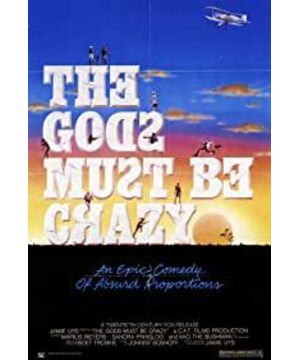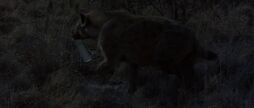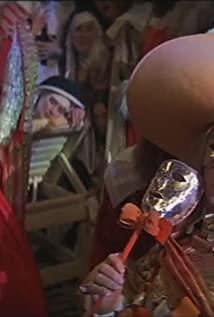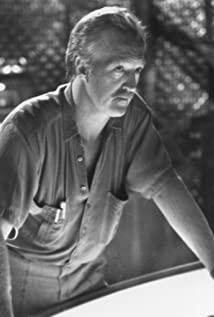"God is Crazy" is a classic comedy film shot in the 1980s. It has two main lines, one is simple and kind, representing the life of the "savage" Bush people, and the other is busy and fast-paced, representing the life of "civilized" modern people.
The opening scene of the film is the Bushes and their lives in the Kalahari desert. They are the most contented people in the great desert where it does not rain for nine months a year. No crime and no punishment, no violence and no law, no police, judges and bosses to speak of. In their world full of goodness and beauty, not even venomous snakes are scary. They believe that what God provides is good and useful. They live as small families, live in isolation, and don't even know that there are other humans in the world. The Bushes have a distinctive language, and they have never seen or heard of a so-called civilization. Sometimes when a cloudless sky hears thunder, they think it's God burping when he's full. They are gentle, never punishing children and speaking out. When hunting, the hunter will also apologize to the prey and explain: "If it wasn't for the sake of livelihood, why would he endure it?" The biggest difference between their characteristics and other races is that they have no sense of ownership, and the environment in which they live has nothing to contend with. There are only trees, green grass and animals, and they have never seen stones in their lives. They live in a peaceful world without stones and steel.
There is a city only 600 miles to the south, where the so-called civilization of mankind can be seen. Humans are unwilling to succumb to the natural environment, but want the environment to accommodate them. So they build cities, transportation, industry, high-rise buildings, and rack their brains to find ways to save manpower, but they don't know how to take it as soon as possible. The more you want to improve your living environment, the more complicated your life becomes. Children spend ten to fifteen years in school, learning how to survive in this complex and dangerous environment. The civilized man, unwilling to succumb to nature, finds that he must adapt all the time to the environment he has created. Going to work from home every morning is about adjusting to a contradictory environment where everyone has to be busy. Every day is fragmented.
In the Kalahari Desert, it is up to you to live your life as you please. If you are happy, every day is Sunday, and you don't need a clock or a calendar to decide your schedule.
At the beginning of the film, these two extreme environments are used to express the theme of the film. Seeing human beings from the perspective of God is so absurd and interesting. In the films of the 1980s, although the special effects seemed very scumbag, the feelings and reflections it brought people were huge.
A Coca-Cola bottle from a civilized world accidentally dropped by a pilot brings these two worlds that seem to have no resemblance to intersect. The empty bottle is the most beautiful thing the Bush people have ever seen, and they find this bottle to be a very labor-saving and most useful tool from God, with a variety of uses. . However, God was too careless and only sent a bottle. For the first time in the Bushmen's mind, there is something that cannot be shared because there is only one. Suddenly everyone has a reason to use the bottle urgently, and the tool that was originally unnecessary has become necessary. Unusual emotions begin to arouse, and everyone wants to possess rather than share. Other new emotions follow, such as jealousy and hatred.
This has a strong innuendo and irony in it. The bottle symbolizes modern civilization and modern tools. Generally speaking, with the help of tools and civilization, human life should become more convenient and pleasant. But it is precisely the appearance of this bottle that brings about negative emotions and disharmony between people. This is like a Pandora's Box, with a strong temptation from "civilization", but it also brings the negative products of civilization at the same time.
The Bushes believe that the discord between them is caused by the bottle thrown by the god, which they call "ominous thing". They believed that God had always given the Bushes only good things, such as water, trees, and fruit, and that God might not have been very clear-headed, so he left this ominous thing. The Bushes, who represent "backwardness" and "barbarism", did not hesitate to abandon the so-called "advanced" and "civilized".
And this also brought deep thinking to those of us from the "civilized world" audience. After laughing, we can't help but ask ourselves: what is real civilization? Is it a high-rise building with advanced science and technology, or a simple rhythm that is backward but harmonious? Is it a modern lifestyle of intrigue and intrigue, or a life of harmony and love with others?
In the film, there is unrest in the world of civilized people, government officials are assassinated by reactionary militants, and children are held as hostages. The civilized world has problems, and no one can think of a solution other than war. In the end, it was Kay, a Bush tribe, who saved the children's lives in his original way and successfully prevented the riot from happening. Why does the so-called civilization need barbarism to save in the end? The depths of the civilization that modern humans are proud of is actually the barbaric inferiority of human beings, and the seemingly barbaric backward races from nature represent the real civilization: harmony, sharing, being kind to others, and no war.
When civilization and barbarism collide, they look at each other awkwardly and smile awkwardly, as if a joke of God's kindness, but the contrast is the "simplicity" of nature and the "recklessness" of civilization. Every culture has its own value and meaning. A "civilized" society flooded with technology and modernization should be embarrassed and thoughtful when faced with such a dazzling result after the collision between civilization and barbarism.
View more about The Gods Must Be Crazy reviews










